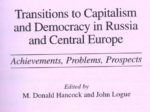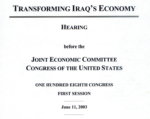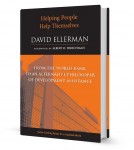In this paper, I am publishing for the first time the author’s devil’s advocacy document when I was Senior Advisor to the Chief Economist of the World Bank, Joseph Stiglitz.
My Congressional Testimony on Iraq in 2003
This is my testimony to the Joint Economic Committee of Congress in 2003 making recommendations after the U.S. conquered Iraq and had to figure out what to do. Today, it can be read as a negative-blueprint since the U.S. seems to have done just the opposite on every count.
Mixing Truth & Power: A Guest Editorial
After the dissent-motivated departures of Joseph Stiglitz, Ravi Kanbur, and now Bill Easterly, even “the most casual observer” can begin to “connect the dots” and see that the Bank is having a problem handling dissent and criticism coming from internal sources. This editorial in the World Bank Staff Association Newsletter traces the problem to the organizational stance of taking “Official Views” on the complex questions of development–thereby mixing power and truth to the detriment of the latter.
Should Development Agencies Have Official Views?
The major development agencies have ex cathedra “Official Views” (with varying degrees of explicitness) on the complex and controversial questions of development. At the same time, knowledge is now more than ever recognized as key to development—in the idea of a “knowledge bank” or knowledge-based development assistance. I argue that these two practices are in direct conflict—much as making Lysenko’s views as “Official Soviet Science” was in conflict with the progress of the science of genetics in the Soviet Union. When an agency attaches its “brand name” to certain Official Views, then it is very difficult for the agency to also be a learning organization or to foster genuine learning in the clients.
Helping People Help Themselves: Towards a Theory of Autonomy-Compatible Help
This is a presis of my book Helping People Help Themselves: From the World Bank to an Alternative Philosophy of Development Assistance. (U. of Michigan Press, 2005) I explore several principles or themes of a theory of autonomy-compatible assistance and show how these themes arise in the work of various authors in rather different fields.
Labour Migration: A Developmental Path or a Low-level Trap?
Migration issues are much discussed today. Our topic is the debate about the developmental impact of migration on the sending countries. Throughout the post-WWII period, temporary labor migration (e.g., South-east Europe to West Europe or Mexico to the United States) has been promoted as a path to development. Remittances have grown to rival or surpass official development assistance and have increased the living standards in the sending countries. However, the evidence over the decades is that the remittances do not lead to development or even to higher incomes sustainable without further migration.







